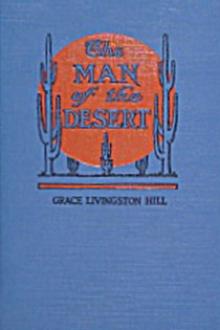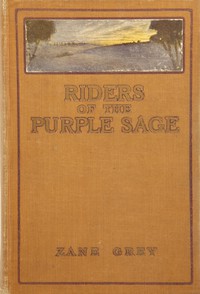The Desert of Wheat, Zane Grey [good non fiction books to read .TXT] 📗

- Author: Zane Grey
Book online «The Desert of Wheat, Zane Grey [good non fiction books to read .TXT] 📗». Author Zane Grey
"Anderson, you're fine—you're as big as the hills!" burst out Dorn. "But you know there was bad blood here last summer. Did you ever get proof that German money backed the I.W.W. to strike and embarrass our government?"
"No. But I believe so, or else the I.W.W. leaders took advantage of a critical time. I'm bound to say that now thousands of I.W.W. laborers are loyal to the United States, and that made me switch."
"I'll deal with them the same way," responded Dorn, with fervor.
Then Lenore interrupted their discussion, and, pleading that Dorn was quite worn out from excitement and exertion, she got her father to leave the room.
The following several days Lenore devoted to the happy and busy task of packing what she wanted to take to Dorn's home. She had set the date, but had reserved the pleasure of telling him. Anderson had agreed to her plan and decided to accompany them.
"I'll take the girls," he said. "It'll be a fine ride for them. We'll stay in the village overnight an' come back home next day.… Lenore, it strikes me sudden-like, your leavin'.… What will become of me?"
All at once he showed the ravages of pain and loss that the last year had added to his life of struggle. Lenore embraced him and felt her heart full.
"Dad, I'm not leaving you," she protested. "He'll get well up there—find his balance sooner among those desert wheat-hills. We will divide our time between the two places. Remember, you can run up there any day. Your interests are there now. Dad, don't think of it as separation. Kurt has come into our family—and we're just going to be away some of the time."
Thus she won back a smile to the worn face.
"We've all got a weak spot," he said, musingly. "Mine is here—an' it's a fear of growin' old an' bein' left alone. That's selfish. But I've lived, an' I reckon I've no more to ask for."
Lenore could not help being sad in the midst of her increasing happiness. Joy to some brought to others only gloom! Life was sunshine and storm—youth and age.
This morning she found Kathleen entertaining Dorn. This was the second time the child had been permitted to see him, and the immense novelty had not yet worn off. Kathleen was a hero-worshiper. If she had been devoted to Dorn before his absence, she now manifested symptoms of complete idolatry. Lenore had forbidden her to question Dorn about anything in regard to the war. Kathleen never broke her promises, but it was plain that Dorn had read the mute, anguished wonder and flame in her eyes when they rested upon his empty sleeve, and evidently had told her things. Kathleen was white, wide-eyed, and beautiful then, with all a child's imagination stirred.
"I've been telling Kathie how I lost my arm," explained Dorn.
"I hate Germans! I hate war!" cried Kathleen, passionately.
"My dear, hate them always," said Dorn.
When Kathleen had gone Lenore asked Dorn if he thought it was right to tell the child always to hate Germans.
"Right!" exclaimed Dorn, with a queer laugh. Every day now he showed signs of stronger personality. "Lenore, what I went through has confused my sense of right and wrong. Some day perhaps it will all come clear. But, Lenore, all my life, if I live to be ninety, I shall hate Germans."
"Oh, Kurt, it's too soon for you to—to be less narrow, less passionate," replied Lenore, with hesitation. "I understand. The day will come when you'll not condemn a people because of a form of government—of military class."
"It will never come," asserted Dorn, positively. "Lenore, people in our country do not understand. They are too far away from realities. But I was six months in France. I've seen the ruined villages, thousands of refugees—and I've met the Huns at the front. I know I've seen the realities. In regard to this war I can only feel. You've got to go over there and see for yourself before you realize. You can understand this—that but for you and your power over me I'd be a worn-out, emotionally burnt out man. But through you I seem to be reborn. Still, I shall hate Germans all my life, and in the after-life, what ever that may be. I could give you a thousand reasons. One ought to suffice. You've read, of course, about the regiment of Frenchmen called Blue Devils. I met some of them—got friendly with them. They are great—beyond words to tell! One of them told me that when his regiment drove the Huns out of his own village he had found his mother disemboweled, his wife violated and murdered, his sister left a maimed thing to become the mother of a Hun, his daughter carried off, and his little son crippled for life! … These are cold facts. As long as I live I will never forget the face of that Frenchman when he told me. Had he cause to hate the Huns? Have I?… I saw all that in the faces of those Huns who would have killed me if they could."
Lenore covered her face with her hands. "Oh—horrible! … Is there nothing—no hope—only…?" She faltered and broke down.
"Lenore, because there's hate does not prove there's nothing left.… Listen. The last fight I had was with a boy. I didn't know it when we met. I was rushing, head down, bayonet low. I saw only his body, his blade that clashed with mine. To me his weapon felt like a toy in the hands of a child. I swept it aside—and lunged. He screamed 'Kamarad!' before the blade reached him. Too late! I ran him through. Then I looked. A boy of nineteen! He never ought to have been forced to meet me. It was murder. I saw him die on my bayonet. I saw him slide off it and stretch out.… I did not hate him then. I'd have given my life for his. I hated what he represented.… That moment was the end of me as a soldier. If I had not been in range of the exploding shell that downed me I would have dropped my rifle and have stood strengthless before the next Hun.… So you see, though I killed them, and though I hate now, there's something—something strange and inexplicable."
"That something is the divine in you.





Comments (0)